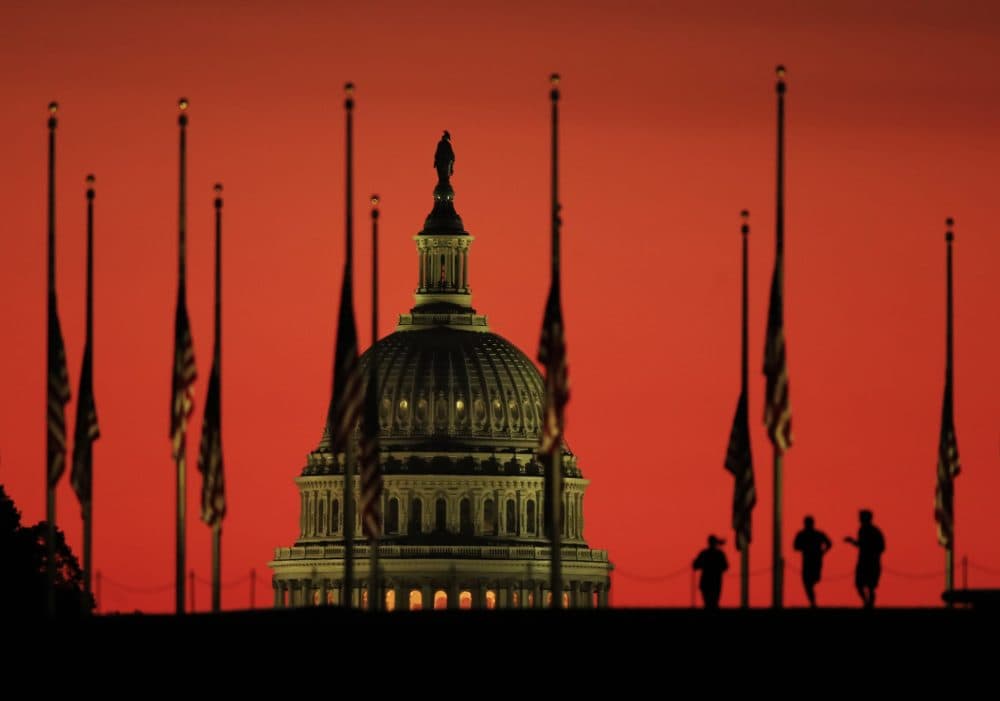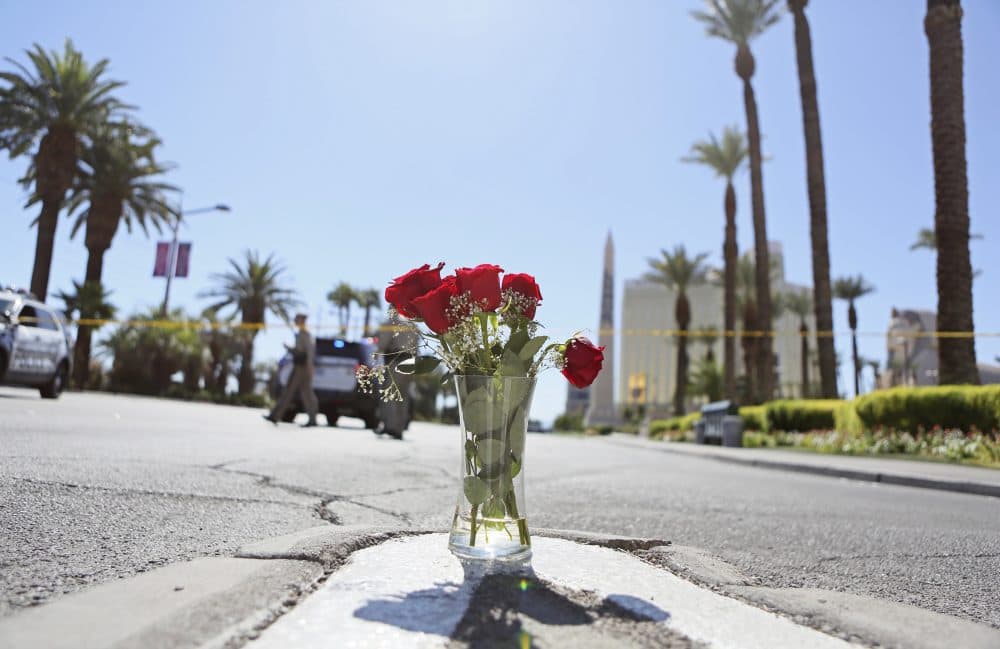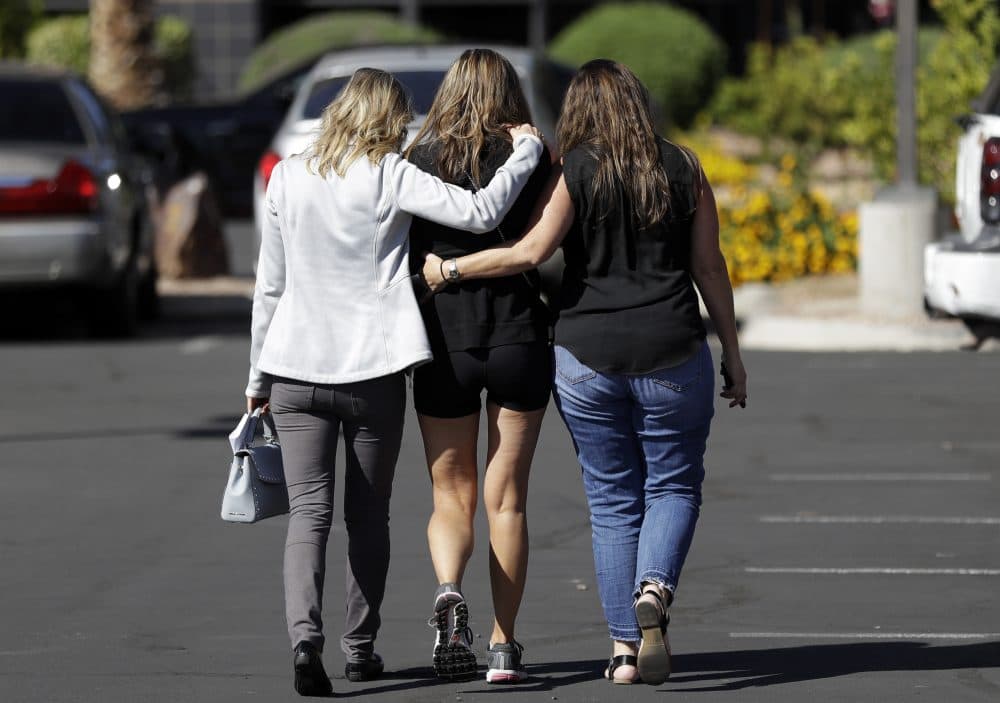Advertisement
commentary
After Las Vegas, Fatalism Is A Poor Excuse To Do Nothing

Less than 24 hours after a gunman in Las Vegas turned a country music festival into a deadly massacre, Aaron Blake, a writer for The Washington Post, lamented, "Why Congress still won’t ‘do something’ about gun laws after Las Vegas." Former Obama speechwriter Jon Favreau, on his podcast, told listeners: “This will be part of the national conversation for, who knows at this point? A day? Two days?” Writers at Mic wrote that despite the national anguish, “if past is prologue, nothing will change.”
Hang on.
Fifty-eight innocent people were just murdered at a Sunday night concert because Congress has neglected to pass legislation that most Americans want. Are we sure the appropriate response is to wearily sit this one out?
I get the fatalism. If Congress failed to act after Sandy Hook, Charleston, San Bernardino, Orlando — after 273 mass shootings this year alone — why would Las Vegas be any different?
I get the exhaustion, too. Like you, I read the news most mornings feeling that each new crisis demands sustained attention and engagement that, in total, feels impossible to muster. How can I afford to focus on gun reform when most of Puerto Rico has no electricity, the EPA is being gutted, and my health care coverage is perpetually on the verge of disappearing?

But when lives are at stake — as they are after Las Vegas, as they are in each of the crises we face — fatalism and exhaustion are poor excuses for inaction.
To believe that change is not possible is to make that belief a reality. We don’t need to dig far back in history for reminders that mobilizing works. Already in 2017, we’ve seen the evidence.
Daily Action, a progressive group, estimates that more than 200,000 calls were made to Congress about health care reform since January. Since Republicans began trying to replace Obamacare in March, constituents repeatedly made their voices heard in opposition to various bills, making each one politically untenable for congressional leaders to support. In March, organized resistance defeated the House’s American Health Care Act. In July, we killed “skinny repeal.” In September, Graham-Cassidy. Republicans in Congress hate being on the receiving end of such efforts, but they admit to being influenced by them. Because thousands of Americans took three minutes out of their day to call Congress, millions more will keep their health care.
Advertisement
Even if we’re convinced that many small actions can collectively make changes, the feeling of exhaustion can be paralyzing. How do we sustain the energy to fight for reproductive rights today, the future of the climate tomorrow, an end to police brutality next week?

The smartest response I’ve seen to this question was one that I stumbled on soon after the election, searching for how to make sense of our new political reality and my place in it. The exact words are now lost to the ether of the internet, but the essence was this:
We need to develop the capacity to do two things at once. First: pick your issue. Stay focused on it. Decide that you will commit yourself to protecting and advancing whatever it is that you care about after it has faded from the headlines. Simultaneously, widen your gaze. Try as best you can to see the whole board. What happens in student loan reform will have ripples in affordable housing. Obfuscation in the Department of Health and Human Services is part of a larger trend that is also showing up in foreign policy. Stay focused on a particular aspect of some issue — but keep your eyes open to the rest of it.
My hope is that many of us will pick common-sense gun reform as our issue, because change will only remain out of reach as long as the National Rifle Association (NRA) is unmatched in the power it wields over Congress. Each of us has the potential to change the power balance of this fight. Since Sandy Hook, Everytown for Gun Safety has built a movement of more than 4 million Americans to counter the influence of the NRA, and it is working. As Sen. Chris Murphy noted in The Washington Post Wednesday, winners of Senate races in New Hampshire, Pennsylvania and Nevada -- all states with strong pro-Second Amendment constituencies -- won their seats with the support of advocates in the anti-gun-violence movement. Every seat we win is one seat closer to the common-sense gun reform that the vast majority of Americans support. If gun safety is your issue, sign up for Everytown. Actually open the emails. Do what they ask.
Gun reform may not be your issue. But while the image of a crowd of music fans being gunned down from above in Las Vegas is still fresh in our minds, perhaps now is the moment to decide what is.
